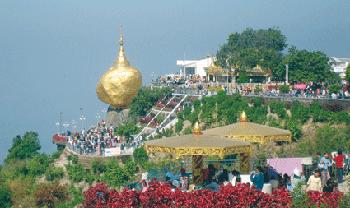Villagers afraid to report forced labour to ILO
(DVB)–The International Labour Organisation has stated that complainants of forced labour in Burma are at greater risk of imprisonment if they have affiliations with political opposition groups.
The comment came after reports surfaced that villagers in Irrawaddy division had been forced to work on the reconstruction of a road, and were afraid to make a complaint to the ILO for fear of imprisonment.
"We heard about two men from central Burma who were recently thrown into prison for reporting a case to the ILO,” said one of the villagers.
Labour activist Zaw Htay was sentenced to ten years imprisonment in January after helping farmers in Magwe divison file a report to the ILO on land seizures.
His lawyer Pho Phyu, was subsequently sentenced earlier this month to four years imprisonment after defending him at the trial.
“So we are scared we might end up the same way if we complain about what happened in our villages," the villager added.
Steve Marshall, ILO liaison officer in Rangoon, said that, although the vast majority of complainants received no subsequent action from the government, there were some that had.
“The ILO is of the belief that in those cases it is because they are firstly politically active, but are secondly active within the ILO’s supplementary framework as well,” he said.
The supplementary framework is the mechanism which deals with complaints to the ILO in Burma. It stipulates that the government must not harass or arrest people who report forced labour to the ILO or collect information on such practices.
“If someone who has got affiliations and is active in other political activity takes action then the risk of them having some retaliation taken against them increases,” he added.
The ILO reported last month that there has been no reduction in forced labour over the past year, despite ongoing attempts to tackle the problem.
Reporting by Francis Wade and Naw Say Phaw



















